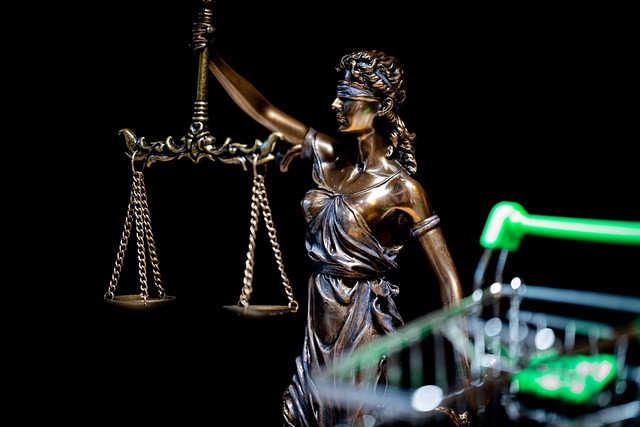Regulatory fraud laws protect fair competition and public trust by preventing misrepresentations in marketing and financial reporting, with varying industry-specific regulations and severe penalties. In intellectual property disputes, fraudulent activities like patent copying, trade secret theft, and forged documentation threaten business integrity. Engaging a Lawyer for Intellectual Property Disputes is vital for navigating complex IP fraud cases, interpreting regulations, crafting defenses, and securing client rights. Preventing regulatory fraud involves organizational strategies (internal controls, policy alignment, employee training) and regulatory enforcement (audits, investigations, penalties), with legal guidance ensuring proactive compliance and vulnerability mitigation.
Regulatory fraud laws are essential tools in combating dishonesty and ensuring compliance across various sectors. This article delves into the intricacies of these laws, offering a comprehensive guide to understanding their scope and impact. We explore common types of regulatory fraud, from financial misdeeds to intellectual property disputes, and emphasize the vital role a lawyer for intellectual property disputes plays in prevention and enforcement. By examining effective strategies, businesses can protect themselves against this insidious practice.
- Understanding Regulatory Fraud Laws: Definition and Scope
- Common Types of Regulatory Fraud in Different Industries
- The Role of a Lawyer for Intellectual Property Disputes in Combating Fraud
- Prevention and Enforcement Strategies: Protecting Against Regulatory Fraud
Understanding Regulatory Fraud Laws: Definition and Scope
Regulatory fraud laws are designed to protect against deceptive practices that undermine fair competition and public trust. These laws encompass a wide range of illegal activities, from misleading marketing claims to false reporting of financial data. Understanding what constitutes regulatory fraud is crucial for both corporate and individual clients navigating complex legal landscapes, especially those involved in intellectual property disputes. A lawyer specializing in intellectual property disputes can help unravel these complexities.
These regulations vary across industries, but their common goal is to ensure transparency and accountability. Violations often lead to severe consequences, including fines, lawsuits, and even jury trials. Businesses and individuals must be vigilant in adhering to the rules to avoid indictment. By employing ethical business practices and seeking legal counsel when necessary, corporate and individual clients can protect themselves from the far-reaching impacts of regulatory fraud.
Common Types of Regulatory Fraud in Different Industries
Regulatory fraud can take many forms across various industries, each with its unique challenges and consequences. From financial institutions to healthcare providers, companies and individuals often engage in deceptive practices to evade compliance or gain an unfair advantage. Common types include misrepresenting financial data, falsifying records, and concealing material information from regulatory bodies. For instance, a pharmaceutical company might underreport side effects of a drug, misleading regulators and consumers alike.
In the realm of intellectual property disputes, fraud can be particularly insidious. A business might copy another’s patented design or trade secrets, then attempt to conceal its origins by forging documentation or distorting facts during all stages of the investigative and enforcement process. This not only threatens the integrity of the respective business but also undermines the legal system designed to protect intellectual property rights. Engaging a lawyer for intellectual property disputes can help navigate these complex cases, ensuring fair representation and the protection of one’s rights in the face of such fraud.
The Role of a Lawyer for Intellectual Property Disputes in Combating Fraud
When navigating complex regulatory fraud cases, engaging a Lawyer for Intellectual Property Disputes can be instrumental in building a robust defense strategy. These legal experts possess an in-depth understanding of intellectual property (IP) laws and their intricate interplay with fraud charges. They play a pivotal role in protecting the rights of both corporate and individual clients, helping them navigate the labyrinthine legal landscape surrounding IP disputes and fraud accusations.
A skilled Lawyer for Intellectual Property Disputes can craft compelling arguments, interpret complex regulations, and present winning challenging defense verdicts. Their expertise extends to guiding clients through pre-trial investigations, preparing comprehensive legal documents, and representing their interests in court. This professional support is invaluable, especially when dealing with allegations that could significantly impact a respective business’s reputation and financial standing.
Prevention and Enforcement Strategies: Protecting Against Regulatory Fraud
Preventing regulatory fraud is a multi-faceted approach that involves robust strategies both within organizations and across regulatory bodies. One key strategy is to strengthen internal controls and compliance programs. Businesses should establish clear policies and procedures that align with industry regulations, along with regular training for employees to ensure they understand their responsibilities. Encouraging a culture of ethical conduct and strong leadership can also deter fraudulent activities.
Enforcement plays an equally important role in protecting against regulatory fraud. Effective enforcement mechanisms include rigorous audits, prompt investigations into suspected violations, and the implementation of severe penalties for non-compliance. Moreover, collaboration between regulatory agencies and law enforcement is crucial to sharing intelligence, identifying patterns, and achieving extraordinary results in prosecuting fraudsters. Engaging a lawyer specializing in intellectual property disputes or corporate law can help respective businesses navigate complex legal landscapes and avoid indictment by ensuring compliance and addressing potential vulnerabilities proactively.
Regulatory fraud laws are an essential tool in maintaining integrity across various industries. By understanding these laws, identifying common types of fraud, and employing robust prevention strategies, businesses can safeguard their operations. A lawyer specializing in intellectual property disputes plays a pivotal role in navigating regulatory complexities, offering expertise to combat fraudulent activities, and ensuring compliance. Together, these measures foster transparency and protect the interests of stakeholders, ultimately strengthening the foundation of ethical business practices.






